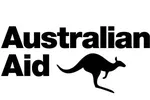Maximizing rural development in Papua New Guinea
A powerful governance tool, custom made and designed to capture project and service data for better decision making
Papua New Guinea
Purpose
Empower government authorities and local communities to enhance rural development outcomes through access to accurate and accessible information and insights for improved planning and management of resources.
Location
Papua New Guinea
Partners
PNG Government Department of Implementation & Rural Development, supported by Australian Government Department of Foreign Affairs & Trade under its Building Community Engagement Program.
Approach
A functional and efficient project management system, integrated with local development and service delivery analysis built with Catalpa’s data management platform, Openly
Achievements
- Bilum Management System design completed in 2023.
- Transition arrangements including GoPNG led governance mechanisms in place and operating
- High level of engagement in pilot locations: Wabag and Nuku Districts self directed data entry with limited input from Catalpa and DIRD.
- Introduced Bilum to over 500 provincial and district participants between August and November 2023 during DIRD led induction rollout.
- Engagement of 68 out of 118 electorates to date.
- Increased commitment by government partners
- DICT, DNPM, PM&NEC, DoF, NSO, DPLGA, NEFC
Benefits
- More efficient allocation of funds resulting in more funds going to where it can benefit the people who need it most
- Improved transparency of funding allocation and disbursement to government and community
- Improved accountability of government funds
- Improved mapping of government assets and resources for improved planning and allocation to meet population needscat
- Strengthened DIRD capacity for data driven decision making
- DIRD and Provincial Partners have increased operational effectiveness
The Department of Implementation and Rural Development (DIRD) is responsible for the oversight and coordination of Papua New Guinea's policies and programs to support equitable rural development.
With 87% of the population living in rural areas, this is an important mandate with huge potential to contribute to national development and raising standards of living. Despite this, DIRD has never had access to a program management system nor to high utility district data and analytical capability to help guide their work.
Since 2020, with support from the Australian Government Department of Foreign Affairs and Trade (DFAT), this ambitious program has been working to change that with the design, development and roll-out of a fit for purpose tool to monitor PNG's Service Improvement Program (SIP). The platform - called Bilum - enables reporting at the district and provincial levels, letting DIRD focus on project appraisal. It also maps out service delivery and priority development indicators for each individual district and province, giving local administrations the necessary insights for the appropriate allocation of funds.
Platform functionalities
- District/Province Information Management System: Profile page for each district and province including mapped service delivery facilities, administrative setup, and development outcomes for infrastructure, education, health, economy, law & justice, agriculture.
- SIP Management System: Tracking of SIP projects results, locations, finances, and policy alignment with the MTDP IV.
- Offline data entry with automatic sync when network is available
- Improved compliance and quality assurance processes
- In-platform SIP reporting by districts/provinces, and appraisal by DIRD for improved compliance
- Automatic import of historical data (242 individual acquittals representing K1.8bn in SIP expenditure), for analysis in SIP performance reporting.
- Fine-grained user access controls, plus security compliance with DICT Cyber Security Policy
Benefits
- Greater transparency and accountability for the Service Improvement Program across districts and provinces through tracking project results, progress, finances, locations, and key service providers
- A robust governance tool for district and provincial administrations to manage their SIP project portfolios
- Easier reporting between national and province and district administrations, through a centralised digital platform over the previously used paper based system
- Cost effective way of reporting, as it drastically reduces province and district cost for logistics involved in submitting paper based SIP reporting
- Data-informed decision making about the allocation of the SIP funds, for example, identifying pockets of the population that are under-served in terms of government facilities
- Analysis of historical SIP data to inform future projects
Building buy-in and support
The PNG context is complex, and central to the program’s continuing success is DIRD’s consistent leadership and ownership of both the program and platform. We work closely to support DIRD and drive initiatives that embed the program and platform in local frameworks, planning and discourse, to ensure its sustainability beyond our involvement.

"It critically addresses development challenges at the provincial and district levels and, more importantly, at the rural level through accountable fund management and data driven information that supports development."
DIRD Secretary Aihi Vaki at the Bilum Platform launch

Progress and deliverables
- 68 locations across 5 regions involved in platform introduction workshops including Ministers, Secretaries, Provincial and Districts Administrators
- Platform rolled out in 11 electorates
- >500 platform users, ranging from District officers, planners, administrators, to DIRD first assistant secretaries
- Currently, there are a total of 51 users from the Provinces and Districts confidently entering data on Bilum.
- Tracking K 1.8bn in SIP expenditure
- Data on 3,737 schools, 3,472 health facilities, and over 25,000 km of roads
Looking forward
The focus for this final phase of the Bilum Program is a sustainable transfer of the digital system to DIRD. This involves further scale up, critical skills transfer and strengthening key government partner agencies for sustainability of Bilum. Catalpa will work closely with DIRD to ensure that the Bilum platform is incorporated into organisational systems and processes, with a focus on skill development, national roll-out and operational and financial sustainability.


